
Norman Reginald McMahon, born 1866
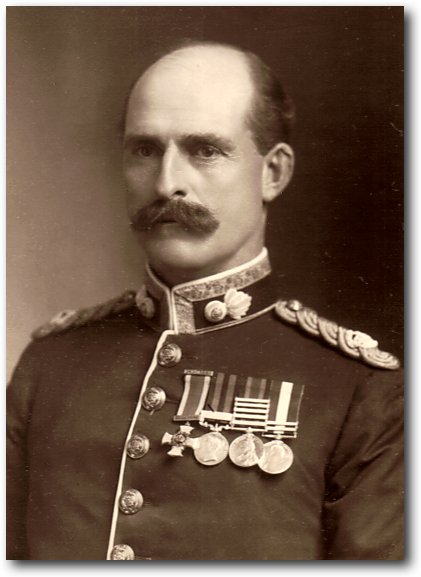
(Photo credit: Brenda Whitmore [nee Bancroft])
An overview of Norman Reginald McMahon has been written by John Bourne at Centre for First World War Studies. Note: John Bourne is writing a book entitled Lions Led By Donkeys. [Photo credit: Brenda Whitmore]
Norman Reginald McMahon was the son of General Sir Thomas McMahon, 3rd Bt. He was commissioned in the Royal Fusiliers in May 1885 and soon saw
active service in the Burmese Expedition (1885-7). He later served in South Africa, where he was badly wounded and won a DSO. McMahon made a vital contribution to the British Army before the war.
As Chief Instructor at the School of Musketry, Hythe (1905-9), he was one of the men principally responsible for the outstanding rifle skills possessed by the BEF in 1914. McMahon was a thinking
soldier who recognised the importance of firepower in a future war. He presented his views to the Aldershot Military Society in 1907 to such effect that many of them were incorporated into British
Field Service Regulations. When his preferred solution, an increase in machine gun provision, fell foul of Treasury economy he set about improving the British soldier’s marksmanship and speed of
fire. He succeeded brilliantly - 'The Mad Minute' .
He was promoted brigadier-general in November 1914 and appointed to 10th Brigade, in succession to Aylmer Haldane. Unfortunately, operational necessity prevented McMahon from leaving his
battalion, 4th Royal Fusiliers, and on 11 November he was killed by a German shell.
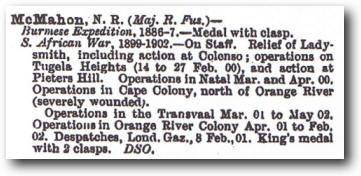
From the Boer War services of officers
(Credit: Robert Smith)
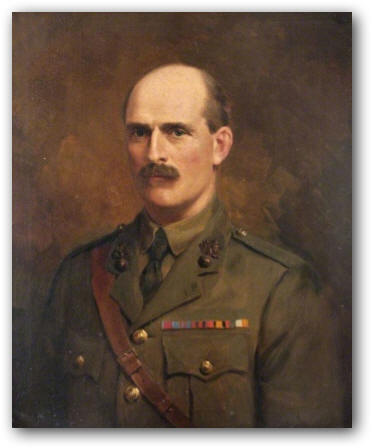
Courtesy of the trustees of the Fusilier
Museum London
According to Daniel E. Waters
In 1907, McMahon authored the text Machine Gun Tactics and had advocated the issue of six machineguns per battalion. In contrast, when confronted in 1915 to estimate machinegun requirements for British forces in France, Sir Douglas Haig insisted that machineguns were "a much overrated weapon" and saw no need for more than two per battalion. Lord Kitchener was more generous and suggested a maximum of four… "above four may be counted a luxury." This led to an outburst by David Lloyd George: "Take Kitchener's maximum; square it, multiply that result by two - and when you are in sight of that, double it again for good measure.
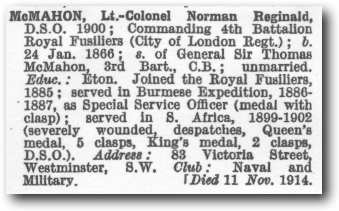
From Who was Who, 1897-1916
(Aldershot library)
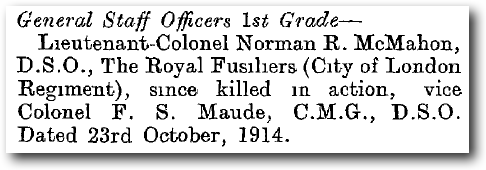
The London Gazette,
13th November 1914
1914: Sir Thomas's younger son, Norman Reginald McMahon died was killed in action in November 1914:
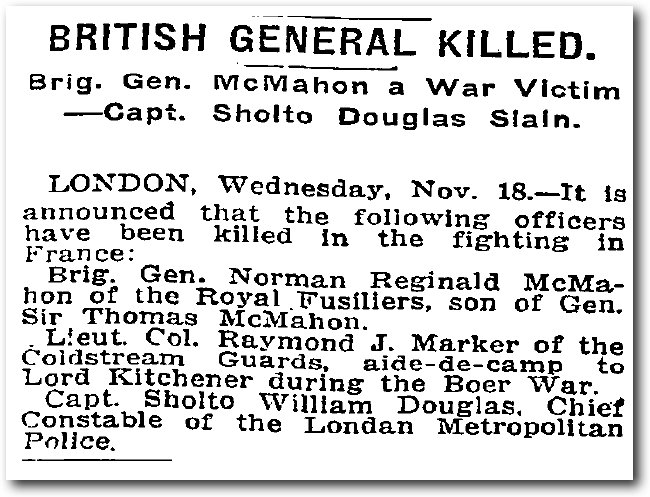
New York Times,
November 18, 1914
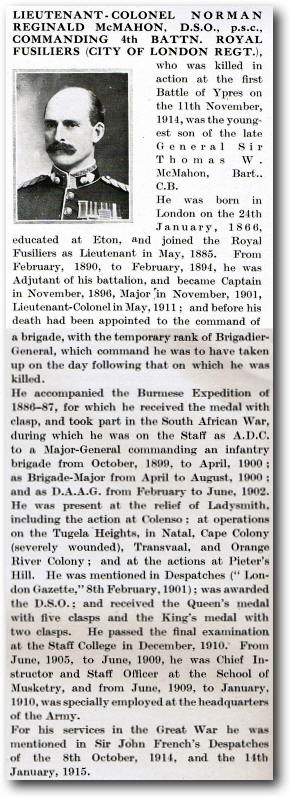
The Sphere, 1914 [Credit: Robert Smith]
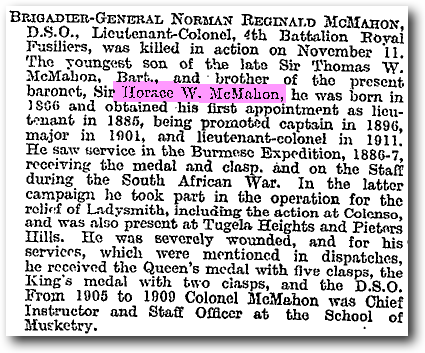
The Times ©,
Tuesday, Nov 17, 1914
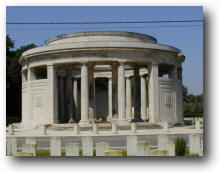 The Commonwealth war Graves commission has
listed Norman McMahon's death and, as he has no known grave, his name is
listed on the
Ploegsteert memorial in
Belgium
The Commonwealth war Graves commission has
listed Norman McMahon's death and, as he has no known grave, his name is
listed on the
Ploegsteert memorial in
Belgium
![]() .
.
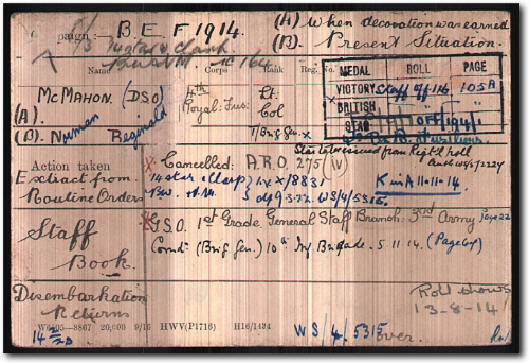
Norman Reginald McMahon's medal index card